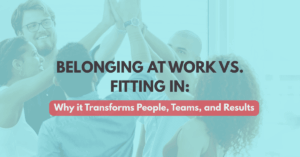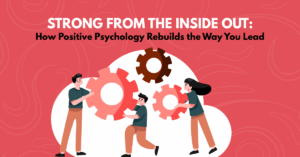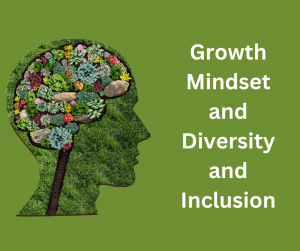Not Enough Diversity in C-suite
By: Mika Acklin
Unconscious Bias in C-suite Leadership
What comes to mind when you think about a C-suite Executive? A Caucasian male with the perfect amalgamation of prestigious lineage, equipped with an ivy league education, and a lengthy resume that describes why he is fitting for the job. Or a Caucasian male that has connections to the right gatekeepers to provide him with the support necessary to rise to the top? The questions posed above could be perceived as unconscious bias.
Unconscious bias is defined as social stereotypes about certain groups formed outside of their conscious awareness. The same unconscious bias presented above is the same biases that minorities and women are faced with when attempting to reach C-suite status. The idea that there are not enough qualified Black people or women to hold these roles can be viewed as unconscious bias. Unconscious bias may appear in the form of unattainable goals that create roadblocks to advancement. In addition, to unconscious bias playing out within organizations, women as well as minorities are not being hired or developed to advance into C-suite roles. Consequently, causing a lack of qualified C-suite executives to choose from when the board of directors is ready to promote from within.
Root causes for the lack of diversity
Although, racial advancements have been made within some organizations such as Merck, AT&T, UPS, and United Health Group, which make up twenty percent of Black CEOs. In addition, to the twelve percent of Black CEOs found at ten major corporations, there is still work to be done. Another issue in some organizations is non-diverse CEOs not equipping themselves with the tools necessary (diversity and inclusion officers) to bring on and develop talented CEOs. Diversity and inclusion officers mention being ill-equipped (in charge of diversity) to create change at the highest level because they are often not invited to sit at the table to share their initiatives to attract and retain diverse talent.
Gender Inequality in C-suite leadership
The lack of diversity among C-suite leaders is not inclusive of race only, but gender as well. While C-suite female leaders are on the rise, female CEOs account for only forty-one out of five hundred fortune five hundred companies or 8.1 percent as of 2021. The rate of growth is slow for female CEOs. Statistics show that between 2015 and 2020, female CEOs only grew by 1.4 percent. This raises the question, why are there so few female CEOs in the workplace?
A leading factor is the inability to juggle both family and busy work life. While some female CEOs can do both, the demand to be available outside of normal working hours leads to the demand to either choose your family life or your career. In addition, careers selected by women (i.e., human resources, administration, etc.) do not lead women down the path to becoming a CEO. Furthermore, women are also less likely to be promoted to positions of power. Minority women (Black and Latina) are less likely to be promoted to CEO positions than their white counterparts.
Women interested in C-suite roles must also decide if they will embody the same characteristics as their male counterparts. Characteristics such as being assertive, confident, or outspoken are perceived as great attributes for a male but not a woman. Women who are too confident may come across as someone selfish and only interested in serving their needs. Instead, women must decide if they are going to be nice or assertive, either way, she may be viewed as a pushover or someone that is too domineering.
Things to consider – Powerful Questions
How can we move away from what is viewed as the ideal C-suite leader and begin to shift the needle by attracting, hiring, and retaining diversity? Is there an opportunity for more training or mentoring to further develop a more diverse talent pool? Are organizations ready to adjust the landscape and encourage a racial/gender-equitable playing field, where others are encouraged to play and not just sit on the sideline?








